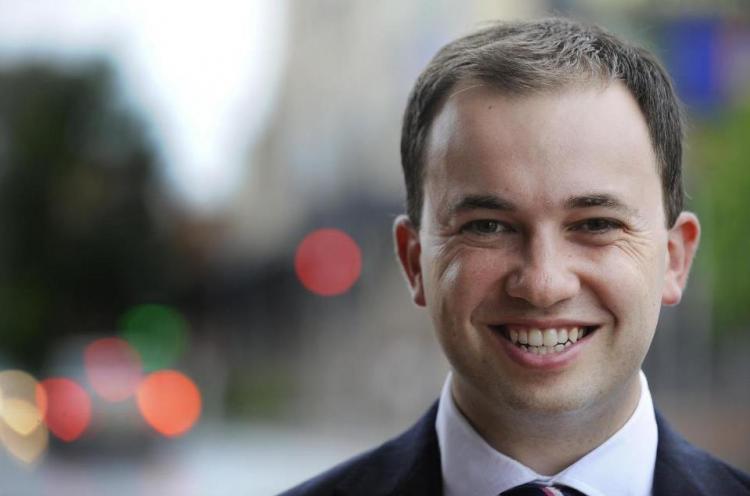
Mr MATT KEAN (Hornsby) [11.57 a.m.]: A constituent of mine, Evan Rollins, knew something was wrong with him. At the age of 16 he began feeling different. The things that once excited him no longer mattered. He could not sleep, he lost all motivation and he became deeply pessimistic about life.
Evan reached a point at which he thought that it was not worth going on. The reality is that Evan's story is not a unique one. This year alone, one in five Australians will suffer from a mental illness. Recent studies show that nearly half of all people over the age of 16 are likely to suffer from a mental health condition at some time in their lives.
Mental health is one of our nation's greatest challenges. It contributes more than any other health condition to the level of disability in the Australian community and it is the cause of a large number of social problems, including unemployment, homelessness and drug abuse. We have come so far as a community in how we treat and deal with mental health issues; however, there is still so much more to do. The Mental Health Commission Bill 2011 is a landmark step in delivering quality mental health services, a landmark step in rising to meet this great challenge. The establishment of a mission-focused statutory body with a charter to drive issues for a particularly vulnerable group is an exciting reform. Yesterday we talked about the Government's performance. Let there be no mistake, this major reform will be remembered as the turning point in improving the experience of individuals and families affected by mental illness.
The bill will establish a governance and accountability structure which will engage a wide coalition of stakeholders. Addressing the challenge of mental illness is not solely the problem of government; it is a problem for all of us. In my electorate of Hornsby there are many quality mental healthcare providers that make a real difference on the ground. The Ku-ring-gai Youth Development Service [KYDS] is a great example of an organisation literally saving people's lives and almost daily I see examples of the good work being done by Declan O'Riordan and his team at the Hornsby-Ku-ring-gai Mental Health Service. Whether it be government private sector, corporations or individuals, we all must come together to share our collective knowledge, skills and determination and bring about the change required.
The commission will ensure that a whole-of-community approach is possible. It is far more than establishing a statutory body; it is an exercise in making New South Wales number one again. New South Wales will be strengthened socially and economically by this reform. It is estimated that mental health symptoms result in a loss of $2.7 billion in employee productivity to the Australian economy. We must address this reality. The commission is focused on providing greater ownership, engagement, transparency and accountability for and to the people of New South Wales. Clause 12 of the bill seeks to ensure more transparency and accountability. The commission calls for a strategic, planned and systemic approach to monitoring, evaluation, research and public reporting. Through this approach we will make a real and sustained impact on reducing the effects of mental illness in our community.
The investment of public money in this important area needs to be targeted and measured to ensure that the desired outcomes are achieved. Australians should expect the same access and quality for mental health care as they do for physical health care. This bill is a major step towards making that a reality. The focus of the commission on addressing existing community knowledge deficits and attitudes towards mental illness is also one of its most important objectives. My dream is that one day people will feel as comfortable talking about mental health issues as they do talking about physical health issues. Perhaps this is the most important step in encouraging help-seeking behaviour. Mental illness is not the debilitating life sentence it was once portrayed as.
The overwhelming majority of those who experience mental illness today will recover and participate in community life. Evidence suggests that most will make a full recovery if they receive treatment early; however, the stigma associated with mental illness still inhibits help-seeking behaviour by too many Australians. As with any health condition, early diagnosis and treatment reduces the impact of a condition and the likelihood of complications, and promotes recovery. A study conducted by the Australian Bureau of Statistics showed that in the previous 12 months over one-third of those with a mental illness had sought treatment. A great challenge for the commission is to address this imbalance so that people like Evan can get the help they need without discrimination.
Mental health reform must be above party politics. It should not be a problem for the Liberals, Labor, The Greens or the Independents; it is a problem for all of us. I am thrilled that members from all parts of the political spectrum are lending support to this important reform today. I acknowledge the outstanding work of the Minister in delivering this outcome and I thank the Premier for his ongoing commitment to improving the lives of those affected by mental illness. Today Evan is finishing a degree in psychology and making a great contribution to the Hornsby community. People like Evan deserve the same level and quality of care as would be expected if they were suffering from a physical illness. I am determined to turn that vision into a reality. Tackling the challenge of mental illness is not easy and I am proud to be part of a government that has had the courage to do it.
